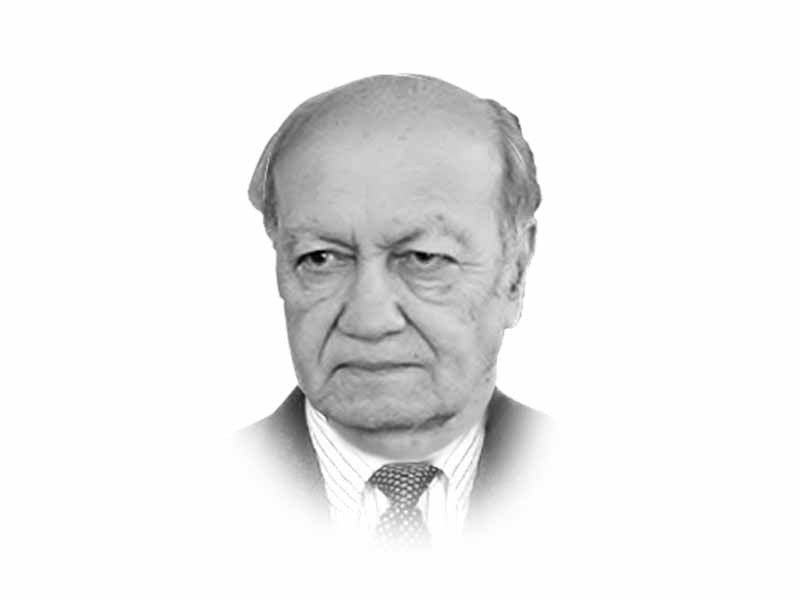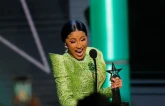
Of course, no one is advocating that the state overlook the party’s unlawful activities or its member’s crimes and for that, the law of the land should be forcefully applied. It has been a gross failure of the provincial and federal governments to have overlooked serious crimes, not only of the MQM but also of all major parties, at the altar of political expediency. Using that as a cover to reconfigure the political party through manipulation will have mixed results.
Providing disgruntled elements within the party with state patronage is not only unethical, but it also unnecessarily generates ill will and a sense of martyrdom. It is too early to predict whether the party breaks up or further cements itself under pressure. In either case, it would not serve national interest. What is required is for the party to move towards major internal reform that completely demobilises its militant wing. Rehabilitate the moderates that can be brought into the mainstream and reject the diehards and irreconcilables. More importantly, the fascist grip of Altaf has to be, preferably, broken from inside and not through external manipulation. The MQM’s second-tier leadership was suppressed, but the movement for reform or leaving the party should not be at the behest of the establishment, but an independent decision.
Considering Altaf Hussain’s deteriorating health and the legal cases that are hounding him, any reasonable leader would have voluntarily abdicated and become a titular head. His image, to some extent, could have been salvaged and detractors disarmed. But expecting propriety would be asking too much from him. There are chances that the party may undergo major turmoil during transition, but the risk is worth taking. After all, there seems no other viable course to resuscitate the party. Clinging on to power through remote control and keeping party workers in line through the coercive use of power is a losing game. This line of action by Altaf is untenable, especially when top-tier and middle-ranking leaders are being assured of protection if they were to abandon the party.
The MQM’s position is further weakened, as it has nothing to offer in defence against the allegations levelled against it, be it in relation to coercion or corruption.
The establishment, too, should bear in mind that building pressure by supporting dissident groups could backfire and draw a sympathetic response. It should primarily focus on breaches of law and also create conditions for self-correction for the party. Otherwise, it would be construed as manipulation. The media frenzy generated against the MQM, strengthens the assumption that there are forces determined to demolish the party. If a political party with as sizeable an electorate as that of the MQM disintegrates, it is possible that frustrated workers may be lured by terrorist organisations. A political vacuum can only be prevented if change is brought about from within.
The dilemma, however, is that if the role of the establishment in national politics persists, political parties, parliament and state institutions will not get an opportunity to develop as institutions, with adverse consequences. This is not to overlook the reality that the political leadership is as much at fault for the current institutional weaknesses.
The plight of the MQM should also be a wake-up call for other political parties to move seriously toward internal reform. The time for disbanding their militant wings is long overdue. Every Karachi citizen knows how this culture of strong-arm tactics has brought about a deep and dangerous nexus with the drug mafia, smugglers and terrorists. The highly praiseworthy efforts of the Rangers and intelligence agencies in neutralising these forces on a long-term basis will only be possible if there is a parallel movement within political parties, driving them to play their role.
Surprisingly, the political leadership of Sindh has not learnt how terrorist organisations take advantage of poor governance and internal dissentions to vastly expand their influence. The Rangers have created conditions and space reasonably favourable for the civil administration to assert itself. But all the gains will be lost if governance fails to improve. There are meagre prospects for any change while Asif Zardari continues to make the major policy and financial decisions through remote control from Dubai, while the well-meaning but aging chief minister acts as the soft face of the PPP.
The demand of the Rangers to establish a parallel system with dedicated police stations could contribute in further weakening the Karachi police force and eventually sideline them, with attendant consequences. One shares their frustrations in dealing with police inefficiencies and corruption. But sidelining them would be akin to throwing the baby out of the tub. The police in Karachi need a major reconstitution in terms of eliminating corruption and improving efficiency, in order to be independent of political patronage. A large contingent of the police force is at the service of a few powerful individuals and politicians and is neglecting their primary responsibility. The whole political culture has to change and the question that is justifiably being asked by many is — who is going to bring about that change and is it even feasible in the current scenario?
Unfortunately, Pakistan’s dilemma ever since its inception has been to look for shortcuts and ignore the development of institutions. These are time-consuming efforts and the Pakistani leadership has been averse to institutional development and established methods of governance. What one can infer from this behaviour is that for some politicians, advancing self-interest trumps advancing national interest.
Published in The Express Tribune, March 16th, 2016.
Like Opinion & Editorial on Facebook, follow @ETOpEd on Twitter to receive all updates on all our daily pieces.

1720097164-0/BeFunky-collage-(9)1720097164-0-165x106.webp)
1730446133-0/BeFunky-collage-(7)1730446133-0-165x106.webp)










COMMENTS (3)
Comments are moderated and generally will be posted if they are on-topic and not abusive.
For more information, please see our Comments FAQ